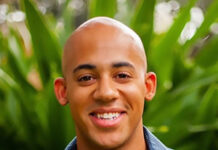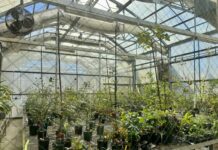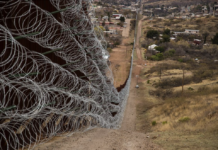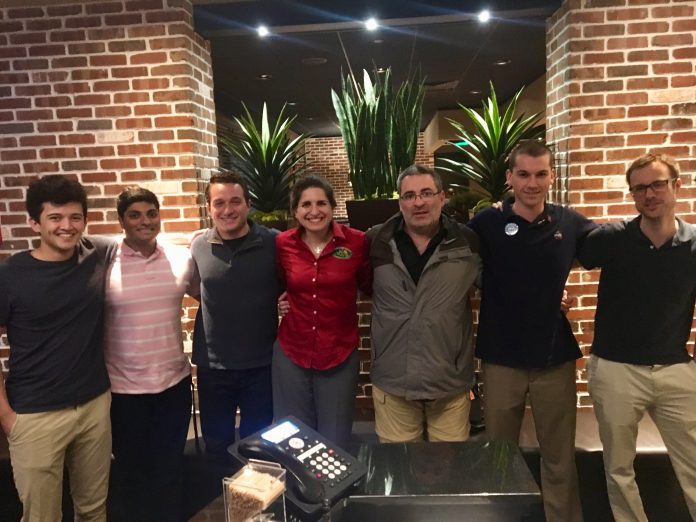
Hayden Gotsch
Dr. Gioia Massa, an astrobotanist from NASA, came to Florida Southern College on Monday to talk about her work sustaining plant life in space, hosted by the FSC Astronomy Club. Massa works at the Kennedy Space Center as an astrobotanist.
Astrobotany is the study of plants in space environments as well as discovering possible plant life of other planets. Massa is working on food production for the International Space Station as well as any future explorations that can come up.
Massa’s first interest in astrobotany sparked in an agriculture class when she was only 12 years old.
She attended Cornell University, where she pursued a Bachelor of Science degree in plant science. She went on to Pennsylvania State University to gain a PhD in Plant Biology, later moving to Purdue University to conduct postdoctoral research.
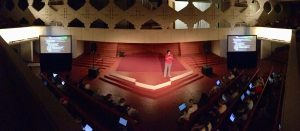
She has led the team in charge of “Veggie” hardware validation, a technology that provides lighting and nutrients for space gardens to International Space Station.
Her work is an interdisciplinary group study on the effects of fertilizer’s and light’s impacts on nutrient content and flavor of the Veggie-grown crops.
In the Veggie experiments, a “pillow” of clay, fertilizer and a seed—red romaine lettuce, mustard, or zinnia—are inserted into a growth chamber that provides light and water to the pillow.
The Veggie program tests how effective, sanitary and easy the pillow method of plant growth is. The plant’s health is monitored by crew aboard the ISS and recorded for study, and their data helps methods future trial methods.
The goal of the Veggie program is to find the most effective way to produce a wide variety of crops in space. This will lead to crops being used and harvested to support space colonies on Mars or in Moon orbit.
NASA has already laid out a plan for colonizing Mars in the near future. It plans to have a self-sufficient colony by the early 2030’s.
Massa’s work is going to contribute to the colony’s food supplies by allowing the colonists to grow and harvest all of the crops they need for long-term space travel.
Her goal for the future of space exploration is to improve the quality of life for astronauts and future residents of Mars habitat.
Massa wants space explorers to enjoy the taste and nutrition of authentic green growing plants, rather than pre-packaged food that’s provided, which isn’t the best.
She wants to assist NASA with the challenges of space colonization and making it possible for humankind to become a spacefaring civilization.
Sophomore biology major and Co-President of the Astronomy Club Arjeet Tipirneni explained what Massa spoke about prior to the event.
“[Massa] has plants on the space station and is actively researching how to sustain plant life beyond our planet,” Tipirneni said. “She will be talking about the future of long term colonies on other planets.”
Massa’s talk was a Passport event in the Learning Beyond the Classroom category.
Editor’s Note: In her talk, Massa showed videos from the ISS detailing the almost ten individual astronauts who contributed to the Veggie effort and detailed the entities that collaborated with the project (including Japan and the South Pole) said there was new equipment being installed the day of the talk – a new Veggie chamber with more regulatory and automated instruments.
Following her talk, Massa answered questions from the audience regarding genetically-modified plants, sustainability, plant hormones, insects and her personal journey to NASA.
She also plugged an internship opportunity with the Kennedy Space Center.
